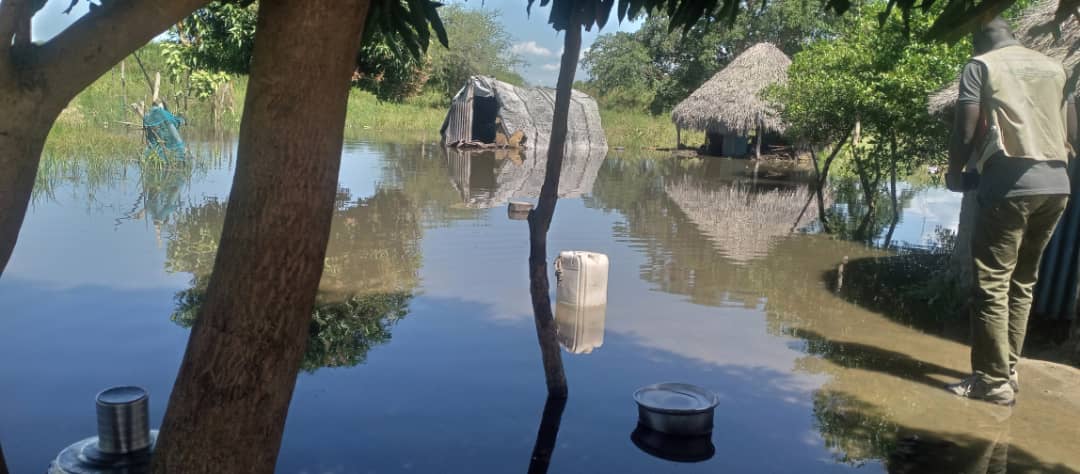MADO Participates in Joint Flood Assessment in Juba County to Uncover Urgent Humanitarian Needs
Date: 2024-08-13

On 8–9 August 2024, the Modesto Agriculture and Development Organization (MADO) joined a multi-agency team in conducting a Joint Rapid Assessment to determine the scale and impact of severe flooding that struck communities in Juba County, particularly in Mangalla Payam. The assessment was spearheaded by UNOCHA, with active participation from WHO, UNICEF, other humanitarian partners, and government officials from Juba County.
According to the Relief and Rehabilitation Commission (RRC) representative in Mangalla, widespread flooding severely affected low-lying communities in Jebel Ladu, Mangalla, Jokoki, Mankaro, Dieri, and Gabor. The floods not only displaced hundreds of families but also washed away crops, submerged homes, and disrupted livelihoods, especially in agricultural areas.
The joint team visited multiple affected sites and gathered first-hand testimonies from local leaders and flood-displaced families. The findings painted a dire humanitarian picture:
• In Mankaro village, 543 households (2,965 people) were displaced and left in urgent need.
• In Dieri, 100 households (529 people) were affected.
• In Gabor, 190 households (1,103 people) faced severe disruption.
• In Mangalla, 115 households (635 people) were impacted.
The majority of displaced persons have now taken temporary shelter in Jokoki village, living in overcrowded conditions without basic services.
The affected populations are in urgent need of:
• Food assistance, as farms have been inundated and harvests destroyed.
• Shelter materials, to replace makeshift structures now housing displaced families.
• Sanitary facilities and hygiene items, to prevent disease outbreaks.
• Clean drinking water, with water sources contaminated by floodwaters.
• Health services, due to increased risk of waterborne and vector-borne diseases.
• Security, especially for vulnerable women and children now displaced from their homes.
MADO, through its community-based presence in Central Equatoria, actively participated in community consultations and data collection during the assessment. The organization emphasized the urgent need to mobilize multi-sectoral support to prevent a secondary humanitarian crisis.
“What we saw in Mangalla and surrounding areas is deeply concerning. Families are sleeping under trees and makeshift shelters. The water levels have destroyed not only their homes, but also their ability to feed themselves,” said a MADO field team leader.
MADO is now working closely with cluster partners and local authorities to advocate for immediate humanitarian intervention, especially in the sectors of WASH, food security, protection, and health. The organization is also developing plans to support flood resilience and early recovery efforts in affected communities.
The joint assessment report will be used by humanitarian actors and government agencies to inform the scale-up of aid and to ensure that flood-affected populations in Juba County receive the support they urgently need.
